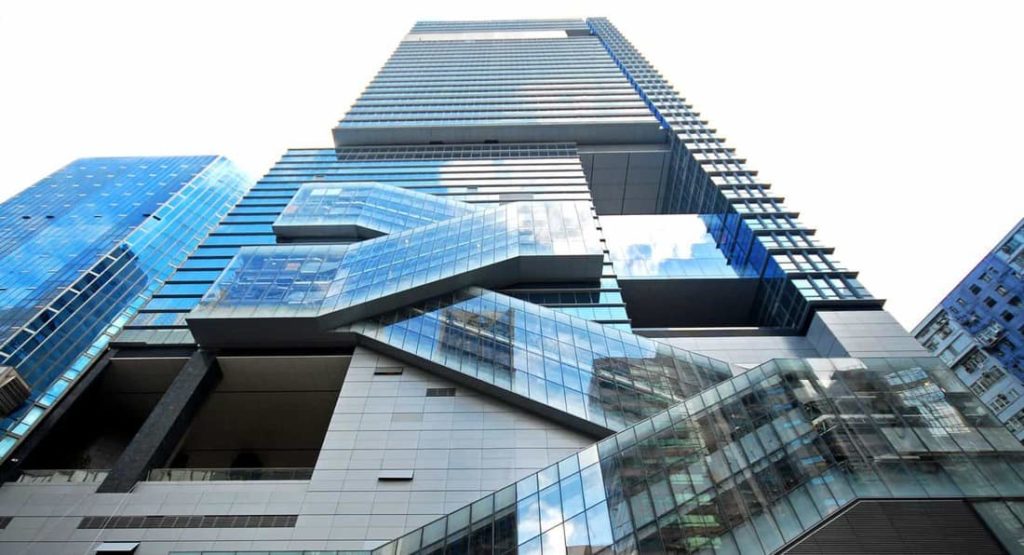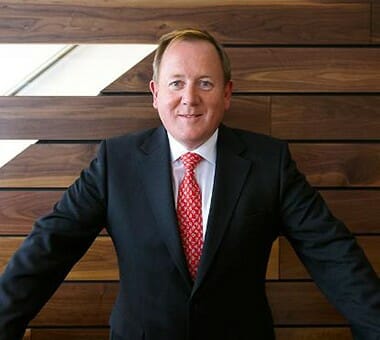
IWG has taken two floors formerly leased by WeWork in Hysan Place
The parent company of Regus has helped itself to a space in Hong Kong vacated by rival WeWork, as the balance of power shifts within the flexible office universe.
IWG, which owns Regus and four other flexible office brands, confirmed to the Financial Times that it had secured the 30,000 square foot (2,787 square metre) space in Hysan Place skyscraper, just over three weeks after Mingtiandi revealed that WeWork had failed to open a centre that had leased in the Causeway Bay tower.
The move by the Luxembourg-based firm, which ranks as the biggest serviced office provider in the world, is seen by analysts as underscoring the company’s intention to continue building out its portfolio in Hong Kong despite a downturn in the market, and comes just days after it raised £320 million ($403 million) in a share placement to “take advantage of growth opportunities and strengthen the group’s global leadership position”.
With this latest transaction, IWG, which operates offices in the city under the Spaces and IQ brands as well as Regus, now has 20 locations in the Asian financial hub. At the same time that WeWork was forced to pull its IPO last year amid record losses and governance issues, IWG notched an 8 percent rise in operating profit bring its 2019 haul to £137.7 million.
Going for Growth Amid Downturn
“What this deal shows is that, for the right space on the right terms, with a concept and product which aligns to market, there are growth opportunities,” said Colliers’ director of flexible workspace consulting in Asia, Jonathan Wright.

IWG founder and CEO Mark Dixon wants to show WeWork how it’s done properly
The space IWG is taking up is spread across two floors of the 40-storey, Kohn Pederson Fox-designed tower at 500 Hennessy Road in the heart of Hong Kong’s commercial district, with the eight year old tower offering 15 floors of grade A offices and 17 floors of retail.
The 30,000 square foot space – which Mingtiandi understands is laid out to accommodate teams of 20-plus – had already been fitted out by the time that WeWork handed the space back to Hysan Development, which owns the office tower, after originally planning to open the location during the final three months of last year.
Although the terms of IWG’s lease have not been revealed, its ill-fated competitor had reportedly agreed to pay HK$70 ($9) per square foot per month for the 30,000 square foot space before being forced to abandon the project.
Surrendering Space in Hong Kong
With this latest deal in Hong Kong, IWG is continuing an expansion which saw the company open close to one location a day last year globally, at the same time that WeWork is dramatically scaling back its presence in the city as it struggles to attain profitability after its botched IPO last year.
With its primary investor, Softbank having scaled back WeWork’s valuation from $47 billion one year ago to $2.9 billion in a financial report released last month, the co-working company has surrendered almost 200,000 square feet of space in Hong Kong since last year – around 20 percent of its total portfolio.
In addition to handing back its Hysan Place location, the company also gave up leases at Wharf’s Harbour City complex in Tsim Sha Tsui and the Harbourside HQ in Kowloon East this year, while handing back its lease at the Hopewell Centre in Wan Chai last August.
The company’s Southeast Asia operations were shaken again just yesterday with the news that its managing director for Southeast Asia and Korea, Turochas “T” Fuad has departed the company.
Fuad had led the expansion of WeWork’s presence in Southeast Asia after the then unicorn acquired his Spacemob Singaporean co-working venture four years ago.
In a move to establish new leadership in the region, WeWork yesterday introduced former IWG and JLL executive Samit Chopra as its new managing director for the Pacific region, which gives him responsibility for the company’s operations in six Southeast Asian nations in addition to Korea and Australia.
Venturing into Co-working Spaces Post-COVID
Despite co-working operators such as WeWork slimming down their operations as tenants flee shared spaces during the coronavirus crisis, the sector is still seen by analysts as playing a part in the office sector post-pandemic.
“We see an opportunity in the market to accommodate larger teams,” said Colliers’ Wright, who added that demand is growing among mid-sized corporates occupying traditional offices of up to 10,000 square feet but are now looking to lease space on more flexible terms with less capital expenditure.
‘This is an opportunity for flexible workspace operators, particularly those with a track record of delivering enterprise grade product,” Wright noted.
Selling Franchises
IWG is looking to dial into this demand, after the £320 million April 2019 sale of the company’s Japan business kicked off an effort to shift into a franchise model.
In the same month that it revealed the Japanese deal, IWG sold a master franchise for its Taiwan business for £22.7 million to the same conference room provider which purchased its Japan operation.
In September of last year, the company continued to pursue its divestment strategy as it announced that it was marketing franchises to potential buyers in Hong Kong, with its global franchise offering still being promoted on IWG’s website.
Leave a Reply